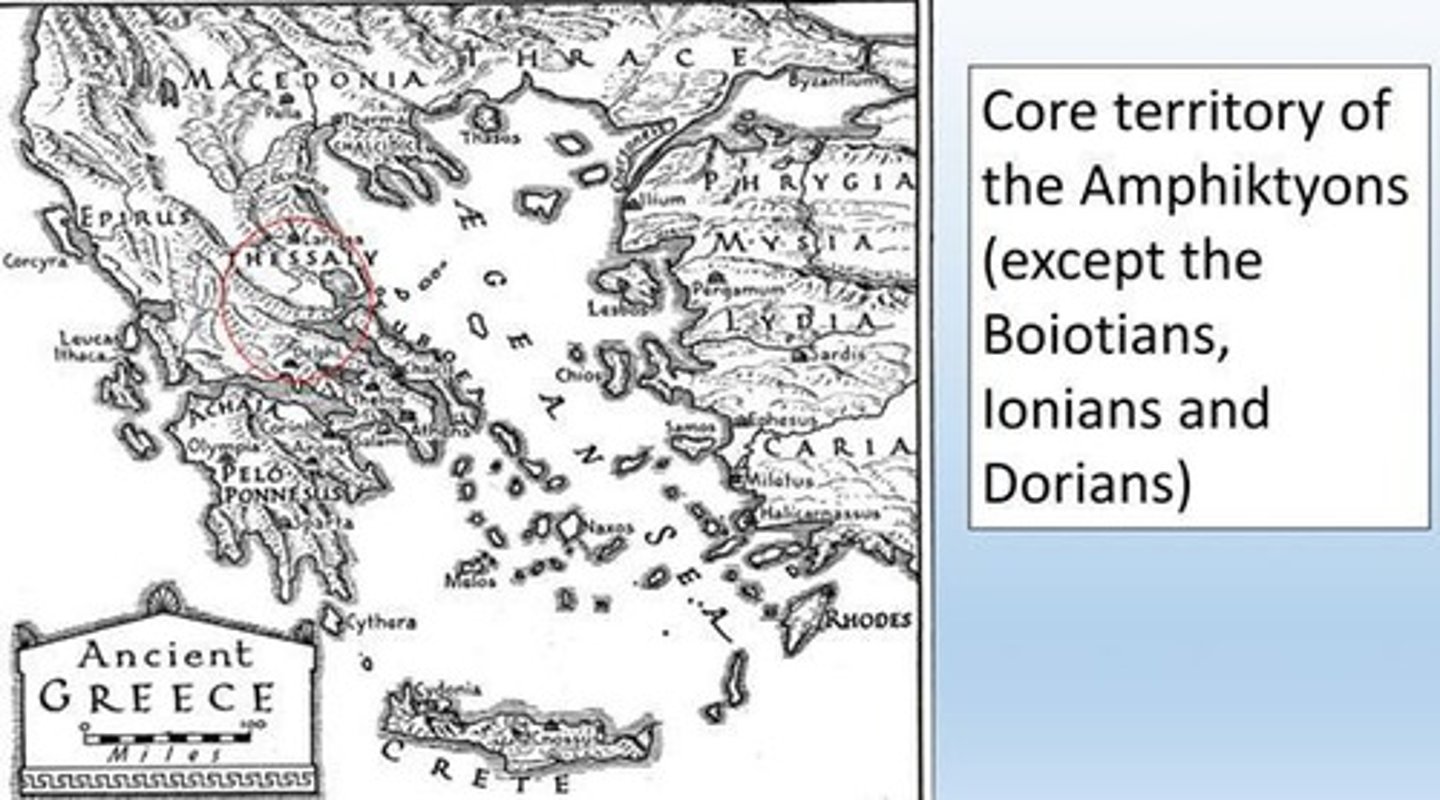Understanding the Ancient Greek Polis and Ancient Greek religion
1/40
There's no tags or description
Looks like no tags are added yet.
Name | Mastery | Learn | Test | Matching | Spaced |
|---|
No study sessions yet.
41 Terms
Polis
city-state: a political system consisting of an independent city having sovereignty over contiguous territory and serving as a centre and leader of political, economic, and cultural life.
Aristotle's view on polis
'Every polis is as we see a sort of partnership, and every partnership is formed with a view to some good'
Differentiation in geography
Differentiation in geography and location in order to make cities less comparably 'typical'.
Technical sense of polis
The term polis has come to be invested with a technical sense which it did not possess in antiquity.
Ancient citizenship (Athens)
Some degree of political enfranchisement.
Legal protection in citizenship
Some degree of legal protection.
Right to own property
The right to own land and property.
Heritability of citizenship
Heritable (passed from father to son).
Proportion of citizenship
Could be enjoyed by a small proportion of the adult male population, or a larger one.
Exclusion from citizenship
Full citizenship always excluded women and the enslaved.
Granting citizenship
Could be granted to citizens of other poleis, as a special honour.
Citizenship in democracy vs oligarchy
'often somebody who would be a citizen in a democracy is not a citizen under an oligarchy.'
Polis political systems
Democracy - demokratia, Oligarchy - oligarchia, Monarchy - monarchia.
Variations of monarchy
Kingship - basileia, Dyarchy (modern term), as seen in Sparta, Tyranny - tyrannis (emergence to take power).
Aritea
success in physical and political careers.
Polis levels of democracy
Polis operate on different levels ranging from monarchy to radical democracy.
Demes
a district, village, or town in ancient Greece, which in some city-states was the basic political unit.
Oikos
Household, its persons and possessions; basic unit of social organization.
Damos/Demos
the people of a particular place, taken as a whole.
Basileus
the headman, chief, or king.
Koine
Shared cultural identity; may include language, material culture, customs etc.
Autonomy
self-government (of each polis).
Synoecism
the merging of small settlements into a larger political unit (polis?).
Federal State
Separate city-states (poleis) of a geographical and/or ethnic region were combined to form a single entity for purposes of foreign policy, while for local purposes retaining their separate identity as city-states and their separate citizenship.
Greek federal states
Some shared decision-making body, some system of collective representation, a shared treasury, sometimes federal coinage, shared religious spaces, and myths of common ancestry.
Greek religion
Polytheistic, flexible and inclusive, based on ritual, especially animal sacrifice and other forms of offering, highly localized and various; no central religious text or dominant priesthood.
Levels of religious activity
Different levels of religious activity exist within the oikos (household), within the polis, and on the panhellenic level, at sanctuaries such as Delphi and Olympia.
Greek religious spaces
The temple (naos), the sacred enclosure (temenos), the sanctuary (hieron), the altar (bōmos), sacred caves, sacred groves, sacred springs, and sacred mountain-tops.
Votive
An offering to the gods.
Attributes of a Greek deity
Includes items like shield, helmet, aegis.
Cult title/Epithet (epeklesis)
Various titles such as Promachos and Parthenos at Athens; Chalkioikos at Sparta.
Powers and spheres of influence of a Greek deity
Includes areas such as craftsmanship and political life.
François de Polignac's view
Temples as boundary marking for territories.
Christiane Sourvinou-Inwood's view
The polis anchored, legitimated and mediated all religious activity.
Religious games and festivals
The 'Crown Games' of Greece include Pythian at Delphi, Olympic at Olympia, Isthmian near Corinth, and Nemean at Nemea.
The Olympic Games
Held every four years, included a declaration of a Sacred Truce, and events such as foot-races, foot-races in armour, chariot and horse races, wrestling, boxing, pankration, and the pentathlon.
Delphic organisation
The sanctuary of Apollo was managed by an 'Amphiktyony', consisting of 12 ethnē (tribes) with 2 yearly council meetings.

Amphiktyonic Council
Each ethnos had two representatives on the council, and its greatest power was that of declaring a 'Sacred War'.
Important phases of construction at Delphi
Second half of 7th c. BCE - the first known Apollo temple is built; ca. 590 BCE - the Pythian Games are established; 6th c. BCE - a profusion of dedications and buildings; ca. 513 BCE - a new temple is built by the Alkmaionids; destroyed by an earthquake in 373 BCE.
Dedications at Delphi
Not all dedications were from the Greek homeland (e.g., Naxos).
Politics and competition within the polis
Special politics and competition for offerings within the polis and temples.